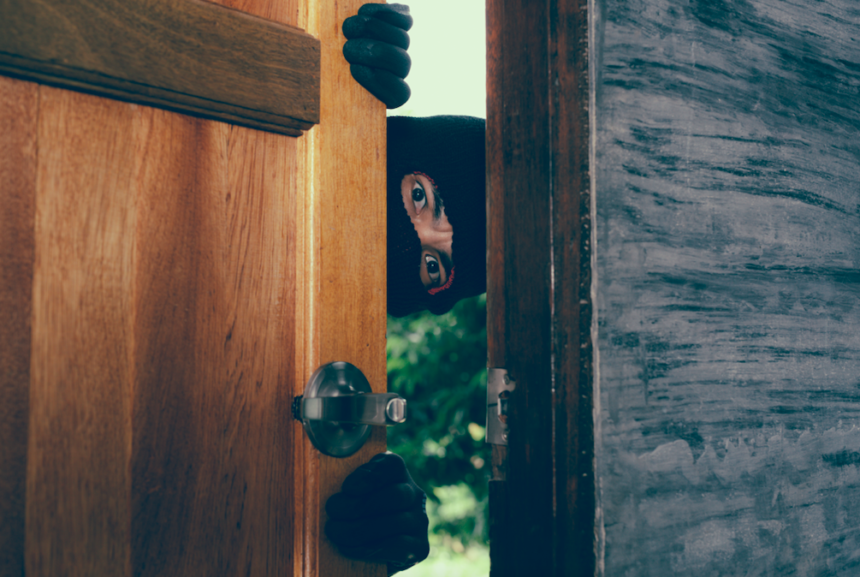Farm security is a crucial concern for agricultural operations, whether you’re managing a large commercial farm or a smaller family-run venture. Farms are vulnerable to various threats, from equipment theft to livestock rustling, and securing your property is essential to protecting your livelihood. Here are 10 effective measures you can implement to improve security at your farm:
1. Install Perimeter Fencing
A strong, well-maintained fence is the first line of defense for any farm. Installing perimeter fencing around your property not only deters intruders but also prevents animals from wandering off. Choose fencing materials that are durable and difficult to breach, such as steel or electric fencing, which is particularly effective for keeping both humans and animals at bay.
Tip: For added security, invest in alarmed fencing systems that alert you when there’s an attempt to break through.
2. Upgrade Your Farm’s Lighting
Proper lighting is an essential security measure, especially in rural areas where darkness can provide cover for criminals. Install bright, motion-sensor lights around key areas such as the entrance, storage buildings, barns, and livestock pens. Motion-sensor lights only activate when movement is detected, which conserves energy and immediately draws attention to any unusual activity.
Tip: Solar-powered lights are a great option for farms with limited access to electricity.
3. Invest in Surveillance Cameras
Surveillance systems are one of the most effective tools for monitoring farm activities 24/7. Strategically place security cameras in areas where valuable equipment, livestock, or crops are stored. Choose high-definition cameras with night-vision capabilities for clear monitoring day and night. Remote access to these cameras via your smartphone or computer allows you to keep an eye on your farm, even when you’re away.
Tip: Visible security cameras act as a deterrent, while hidden cameras provide backup surveillance.
4. Use Security Alarms
An alarm system installed at key entry points on your farm—such as doors, gates, and windows—can alert you immediately in case of unauthorized access. Alarms can be set up to notify you via phone or email when a breach occurs, ensuring a quick response to potential threats.
Tip: Make sure your alarms are properly connected to reliable power sources and test them regularly to ensure they are functioning correctly.
5. Secure Your Tools and Equipment
Farm tools and machinery are often targeted by thieves because of their high resale value. Ensure that all tools, vehicles, and equipment are locked away in secure sheds or barns when not in use. Heavy equipment such as tractors and harvesters should be stored in areas with restricted access and immobilized with wheel locks or other theft-prevention devices.
Tip: Mark your equipment with your farm’s name or unique identification numbers to make stolen goods easier to trace.
6. Protect Livestock with GPS Trackers
Livestock theft is a serious issue, particularly for farms in remote locations. Attaching GPS tracking devices to your livestock allows you to monitor their location in real-time. If an animal is stolen or goes missing, you can quickly pinpoint its whereabouts and recover it before significant loss occurs.
Tip: For large herds, concentrate GPS devices on high-value or easily targeted animals, such as breeding stock.
7. Establish Controlled Access Points
Limit the number of entry and exit points to your farm. By having one or two designated gates or driveways, you can better monitor who enters and exits the property. Install access controls such as electronic gates, padlocks, or coded keypads to ensure that only authorized individuals can enter.
Tip: Post signs indicating that the area is under surveillance and entry is restricted, which can further deter intruders.
8. Collaborate with Neighbors and Local Authorities
Forming a neighborhood watch or farm security group can enhance the protection of your property. Stay in regular communication with nearby farmers and share information about any suspicious activities or recent incidents. You can also work with local law enforcement to conduct regular patrols or security assessments of your farm.
Tip: Create a shared emergency response plan with neighbors to ensure a coordinated approach in the event of a security breach.
9. Hire Security Personnel or Dogs
If your farm spans a large area or is located in a high-risk region, employing security personnel may be necessary. Trained guards can patrol the farm, respond to alarms, and manage access control. Alternatively, using trained guard dogs can be a cost-effective and reliable security measure, particularly for protecting livestock.
Tip: Ensure that any security personnel or animals are well-trained and familiar with the layout of your farm.
10. Implement Cybersecurity Measures
As farms become more reliant on technology for management and operations, cybersecurity is just as important as physical security. Protect any smart devices, GPS trackers, and automated machinery with strong passwords and regularly update software to prevent hacking. Secure your farm’s Wi-Fi network with encryption to ensure that sensitive information about your farm’s operations isn’t exposed to unauthorized parties.
Tip: Back up any important farm data regularly to avoid losses due to malware or data breaches.
Improving the security of your farm requires a multi-faceted approach, combining physical, technological, and community-based measures. By proactively implementing these 10 strategies, you can reduce the risk of theft, vandalism, and other security threats, ensuring that your farm remains productive and protected for years to come.
Image by aleksandarlittlewolf on Freepik
Join 'Farmers Mag' WhatsApp Channel
Get the latest Farming news and tips delivered straight to your WhatsApp
CLICK HERE TO JOIN






